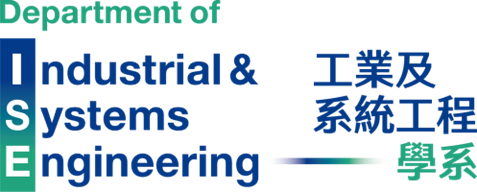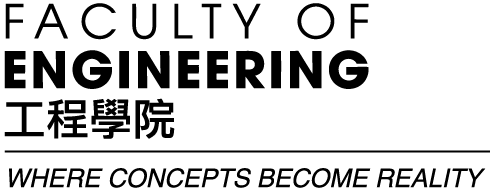PolyU and the China Academy of Space Technology to jointly develop a Mars camera for the nation’s first Mars probe (理大與中國空間技術研究院合作研製火星探測器的「落火狀態監視相機」)
香港理工大學(理大)將與中國空間技術研究院(五院)合作,研發和生產一台可搭載於擬於最早2020年發射的火星探測系統上的「落火狀態監視相機」(「火星相機」)。雙方於今天(2018年8月22日)就火星探測項目的聯合研製協議(「聯合協議」)舉行簽署儀式。
聯合協議的合作項目旨在支持國家的首次火星探測。據了解,火星探測器擬於2020年發射,目標是在一次任務中,對火星同時進行軌道和地面探測,這將成為全球首次相關任務。
火星探測系統由環繞器、著陸器和巡視器組成。根據聯合協議,理大設計和生產的「火星相機」將搭載在著陸器外面頂部,用於監視降落火星後巡視器的操作狀態,包括太陽翼的打開、火星的周遭環境,以及巡視器本身的走動情況。這些資訊對掌握巡視器能否在火星表面成功巡視至關重要。
理大副校長(科研發展)衞炳江教授與五院總經濟師周宏女士今天假理大簽署「聯合協議」,並由嘉賓見證簽署儀式。簽署儀式的見證人為:香港特區政府教育局局長楊潤雄先生、中央人民政府駐香港特別行政區聯絡辦公室教育科技部李魯部長、教育資助委員會主席唐家成先生、理大校董會主席陳子政先生、理大校長唐偉章教授、五院黨委書記兼副院長趙小津先生、五院總體部部長孫京先生,以及五院處長何楠女士。
理大校董會主席陳子政先生致歡迎辭時說:「理大是香港唯一擁有航太任務實戰經驗的高等院校,我們的科研人員自1990年代開始參與國家和國際的太空探索研究。理大很高興與五院再次合作推動太空科技研究,研發火星巡視器的『落火狀態監視相機』,支持國家的火星探索項目。我們期盼進一步發揮理大的專長,為國家的航天事業發展作出更多貢獻。」
理大在研發精密太空儀器方面經驗豐富,這次合作將由其工業及系統工程學系精密工程講座教授及副系主任容啓亮教授率領二十名理大研究人員,與五院的專家緊密合作,共同研發「火星相機」。
該「火星相機」不僅要重量輕巧(約380克),同時須十分堅固,以抵受穿梭地球與火星長期出現的極端溫差(超過九個月),及後須能在火星極低溫下運作,並要承受相等於地球地心吸力6,200倍的沖擊震盪。此外,「火星相機」須具備廣闊測量視野(水平視野範圍和垂直視野範圍分別均達120度),同時將圖像變形保持於低水平。
容教授表示:「這次研發工作面對兩大挑戰:這台相機要十分輕盈,有廣闊的拍攝角度及減少影像變形之餘,要同時能抵受極強大的沖擊力;第二是令相機在長時間的太空旅程中克服極端溫差、輻射、機械振動等挑戰,最後仍保持十分高的穩定性。」
憑藉理大過往參與多項太空探索項目的經驗以及具備的核心研發技術,研究團隊有信心能順利製成「火星相機」,並於明年內通過多項相關的太空驗證,完成交付「火星相機」,為2020年的火星探測項目作好準備。
理大多年來積極參與不同的太空探究項目,研製先進的太空儀器,包括為歐洲太空總署2003年火星快車任務研發「岩芯取樣器」,並為2011年的中俄聯合探索火星任務研發「行星表土準備系統」。
理大是香港唯一擁有國際太空任務實戰經驗的高等院校,自2010年起與五院長期緊密合作,為國家的太空探究項目作出貢獻不遺餘力。理大和五院曾簽約合作建立一所「空間精密機械技術聯合實驗室」,而五院亦向聯合實驗室送出先進設施。為支持國家的探月工程,容教授亦與內地的專家攜手研製出「相機指向機構系統」,應用於嫦娥三號及嫦娥四號;以及應用於嫦娥五號及嫦娥六號的「表取採樣執行裝置原理樣機」。
The Hong Kong Polytechnic University (PolyU) will collaborate with the China Academy of Space Technology (CAST) to develop and produce a camera on the spacecraft to Mars scheduled for launch in 2020 at the earliest. The two parties signed the Collaborative Research and Development Agreement (R&DA) on Mars Exploration Project (“the Collaborative Agreement”) at a ceremony today (22 August 2018).
The project is in support of the nation’s first Mars probe tentatively scheduled for 2020, which aims to conduct an orbital and surface exploration of Mars in a single mission, the first-ever attempt in the world.
The spacecraft for the Mars probe will compose of an orbiter, a lander and a rover. Under the Collaborative Agreement, PolyU is to design and produce a camera, “Mars Landing Surveillance Camera” (“Mars Camera”), which will be located on the outside top surface of the Mars Lander. The Mars Camera will monitor the deployment status of the Mars Rover with respect to the status of the solar panel, antenna, as well as the rover’s movement. The information is critical for the successful movement of the Mars Rover onto the Mars surface.
Professor Alex WAI, Vice President (Research Development) of PolyU, and Ms ZHOU Hong, Senior Vice President of CAST, signed the Collaborative Agreement on PolyU campus. Witnesses of the ceremony were: Mr Kevin YEUNG, Secretary for Education, HKSAR Government; Professor LI Lu, Director General of Education, Science and Technology Department, The Liaison Office of the Central People's Government in HKSAR; Mr Carlson TONG, Chairman, University Grants Committee; Mr T C CHAN, Chairman of the Council, PolyU; Professor Timothy W. TONG, President of PolyU; Mr ZHAO Xiaojin, Executive Senior Vice President, CAST; Mr SUN Jing , Director General, Institute of Spacecraft System Engineering, CAST; and Ms HE Nan, Director, Institute of Spacecraft System Engineering, CAST.
Chairman of the PolyU Council, Mr T C CHAN, said at his welcome remarks, “PolyU is the only tertiary education institution in Hong Kong with experience in space missions. Our researchers have been involved in a number of national and international space exploration projects since the 1990s. It is our pleasure to work with CAST again to advance space technology and research through the joint development of Mars Landing Surveillance Camera, and support the nation's Mars Exploration Programme. We are keen to capitalise PolyU’s expertise to further contribute to the development of the nation’s space industry.”
Capitalising on its wealth of experience in developing state-of-the-art space tools, PolyU will mobilise a 20-member-strong research team led by Professor YUNG Kai-leung, Chair Professor of Precision Engineering and Associate Head of its Department of Industrial and Systems Engineering, to work closely with CAST experts on the development of the Mars Camera.
The Mars Camera will have to be light in weight (around 380 grammes) while strong and durable under extreme temperatures during the extended period of space travelling between Earth and Mars (over nine months), followed by operation under extremely low temperature on the Mars surface. It will also be able to tolerate impact shock of 6,200G (i.e. 6,200 times of the force of earth’s gravity). Despite having a wide angle field of view (a maximum of 120 degrees horizontally and a maximum of 120 degrees vertically), the Mars Camera will have low image distortion.
Professor YUNG said, “Among all the difficulties in the research and development (R&D) work, the two biggest challenges are the wide field of view with low distortion optics under high impact force with little available mass, and the high reliability required under a prolong period of extreme temperatures, radiation, mechanical vibration, etc.”
The PolyU team, capitalizing on its experiences of previous space projects and synergising core technologies ready for its R&D work, is confident to complete and deliver the Mars Camera with the corresponding space qualification experiments within next year, ready for the launch in 2020.
PolyU has been actively participating in space exploration projects through designing and manufacturing sophisticated space tools in the past decade. These include the “Mars Rock Corer” for the European Space Agency’s 2003 Mars Express Mission, the “Soil Preparation System” for the Sino-Russian Space Mission in 2011.
Being the only tertiary institution in Hong Kong that possesses international space qualification experiences, PolyU has been contributing unreservedly to the nation’s space projects since the longstanding partnership between PolyU and CAST began in 2010. The two parties signed a pact for the establishment of a Joint Laboratory in Precision Engineering for Space Applications, and CAST donated advanced space research equipment to the Joint Laboratory. In the nation’s lunar exploration programme, Professor YUNG collaborated with the mainland experts to develop a “Camera Pointing System” for Chang’e 3 and Chang’e 4, and then the “Surface Sampling and Packing System” for Chang’e 5 and Chang’e 6.
Source: PolyU website














